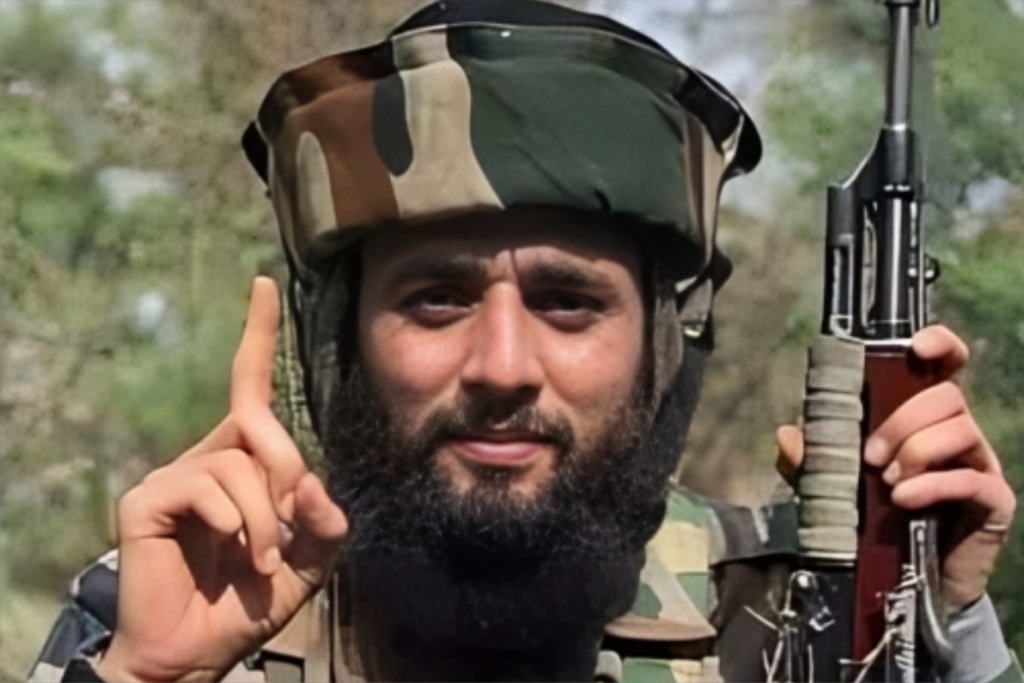
JUNAID SEHRAI: CARRYING FORWARD THE LEGACY OF PROPHET ISMAIL (A.S)
Gowar Farooq
In Kashmir, Junaid Sehrai’s story challenges common beliefs about the role of political leaders’ children in freedom movements. Many in Kashmir, often belonging to the pro-Indian camp, would argue that the children of resistance leaders are protected from danger and have been living comfortably away from real struggles due to their family’s position. This narrative was fueled and promoted by the Indian state to discourage the common masses from joining the resistance movement. However, Junaid Sehrai’s active participation in armed resistance challenged this perception. While Junaid is not the only martyr son of a resistance political leader, many others include the martyr son of former Ameer Jamaat e Islami J&K Sheikh Muhammad Hassan and other Arkans of Jamaat have sacrificed their youth for the sacred cause of Kashmir’s war of liberation.
Choosing to leave a comfortable life, Junaid joined Hizbul Mujahideen on 24 March 2018. This was a significant decision that showed his dedication and belief in his father’s cause. His active role in the armed resistance and his martyrdom on 19 May 2020 during a gunfight with the Indian occupational forces broke the stereotype that the children and families of resistance leadership are distant from actual sacrifices. Instead, his actions served as an example of “leading from the front” or “charity begins at home” and highlighted a story of shared sacrifice and unity, closing the gap between leaders and common people. The statements of his father, Shaheed Ashraf Sehrai, remind us of the character of the companions of the Prophet (A.S), and Junaid reminds us about the legacy of Prophet Ismail (A.S) and Hussain (RA). This example set by the Sehrai family is unmatched and unparalleled. It is also a lesson for those children and families of the “resistance” leadership who sold Kashmir resistance for personnel benefits. It took a person like Sehari to sacrifice his beloved son, an MBA graduate, to answer the critics that the men of resistance are the men of the book (Quran). They are not like the privileged children of the elite politicians in the pro-Indian camp. There is a huge difference between the two; on the resistance side, “charity begins at home,” and highlighted a story of shared sacrifice and unity, closing the gap between leaders and common people. The statements of his father, Shaheed Ashraf Sehrai, remind us of the character of the companions of the Prophet (A.S), and Junaid reminds us about the legacy of Prophet Ismail (A.S) and Hussain (RA). This example set by the Sehrai family is unmatched and unparalleled. It is also a lesson for those children and families of the “resistance” leadership who sold Kashmir resistance for personnel benefits. It took a person like Sehari to sacrifice his beloved son, an MBA graduate, to answer the critics that the men of resistance are the men of the book (Quran). They are not like the privileged children of the elite politicians in the pro-Indian camp. There is a huge difference between the two; on the resistance side, “charity begins at home,” while in the pro-Indian camp, there are dynasties, the children of the elite clients of India are bound to replace their parents, and there is no space for low-rung clients to head stoogery. The only place for a common person in the pro-Indian camp is that of a puppet, a lowest one.
When his father Shaheed Muhammad Ashraf Sehrai publicly acknowledged Junaid’s decisions—from taking up arms to his martyrdom—it solidified Junaid’s status as a martyr and a hero. This acknowledgment paralleled the recent sentiments expressed by Ismail Haniyeh, the chief of Hamas, when he spoke about the martyrdom of his own children and grandchildren in Israeli strikes, emphasizing that his children were no different from other Palestinian children. Such statements from leaders underscore the shared sacrifices made by families of resistance.
Junaid Sehrai’s life and death exemplify that leadership and sacrifice in the fight for freedom and rights are not exclusive to those outside leadership. By engaging directly in the struggle, Junaid honored his father’s legacy and reinforced the call for continued resistance against the Indian rule. His actions encourage the people of Kashmir to not only remember his sacrifices but to actively support and uphold the cause he and his father stood for.



